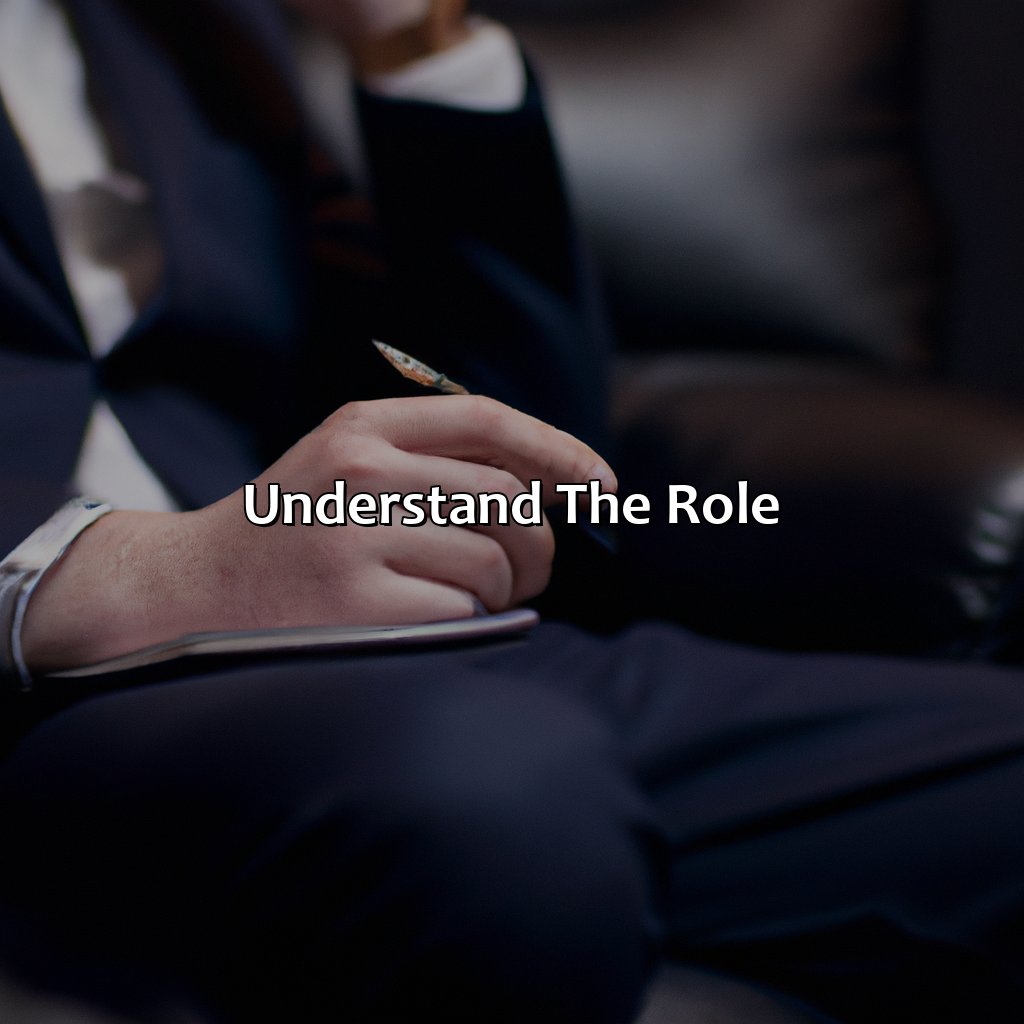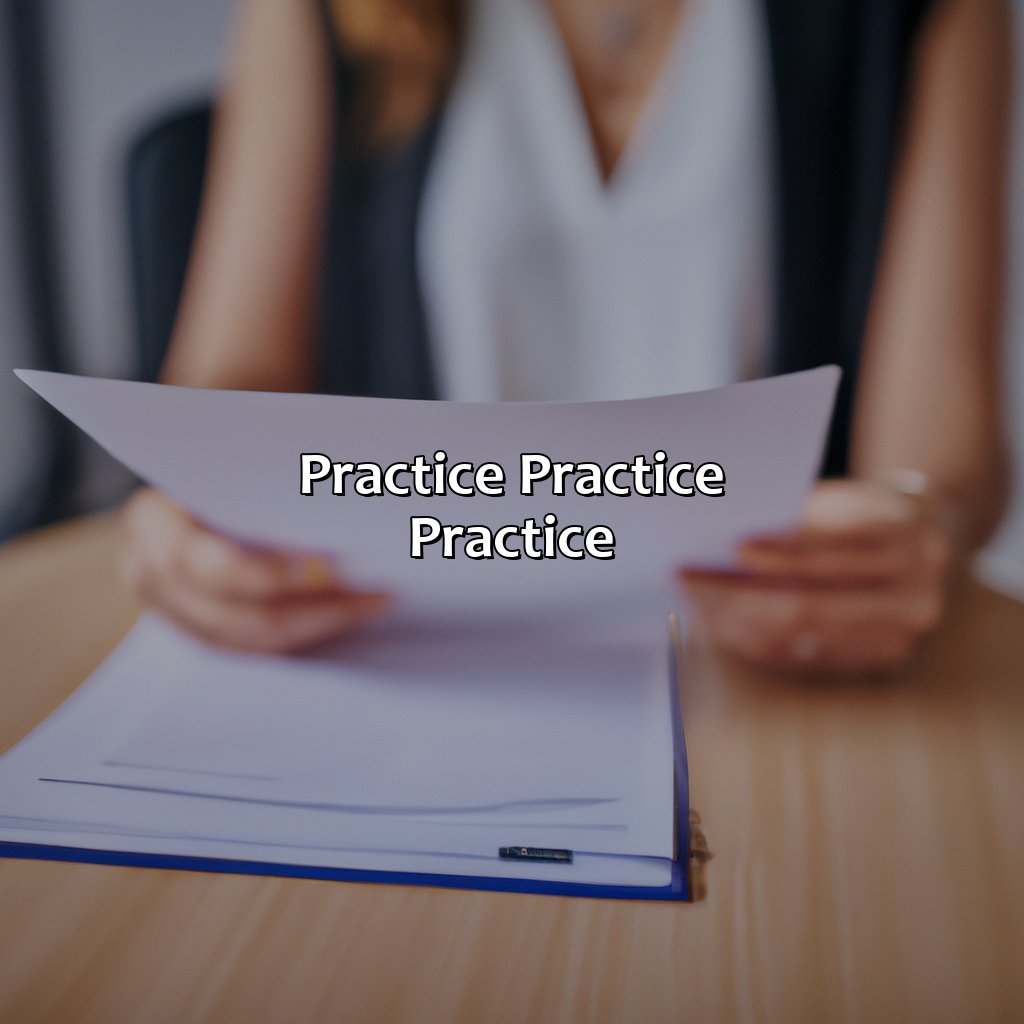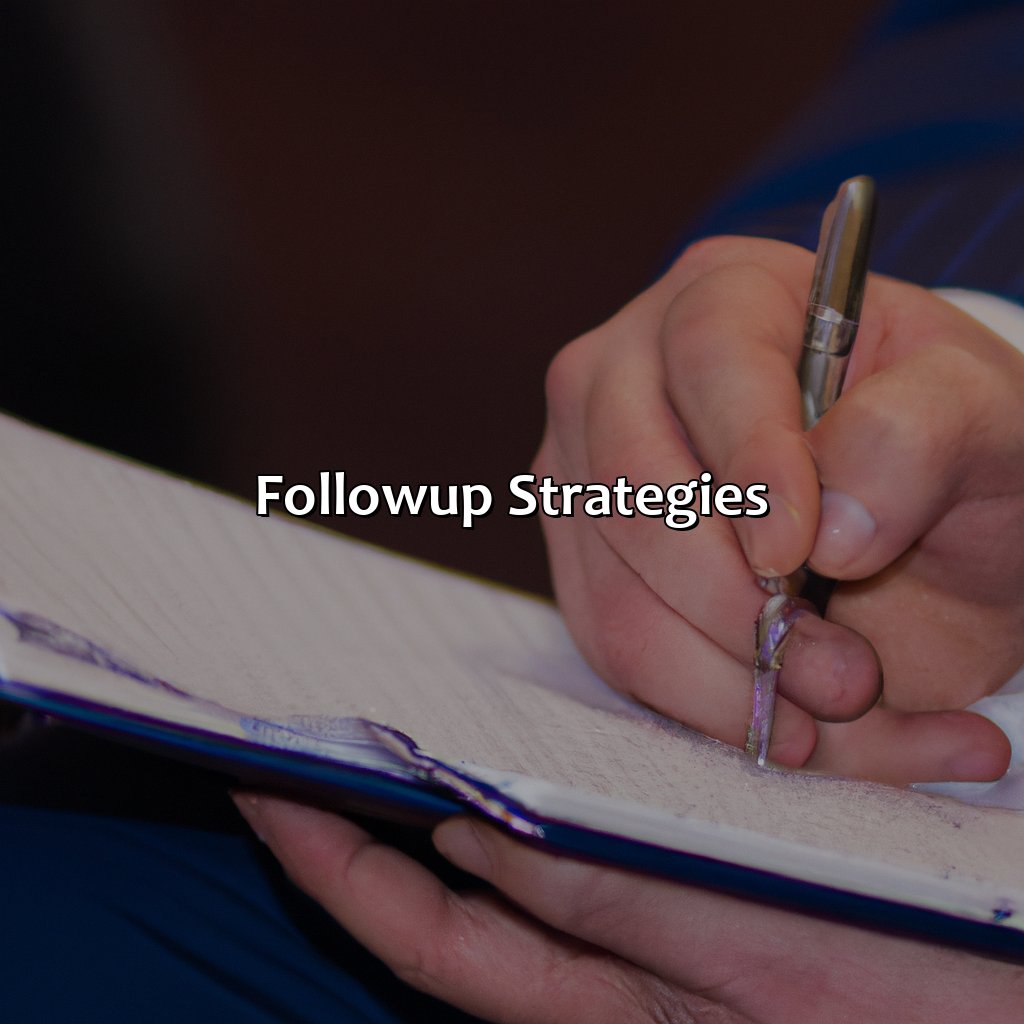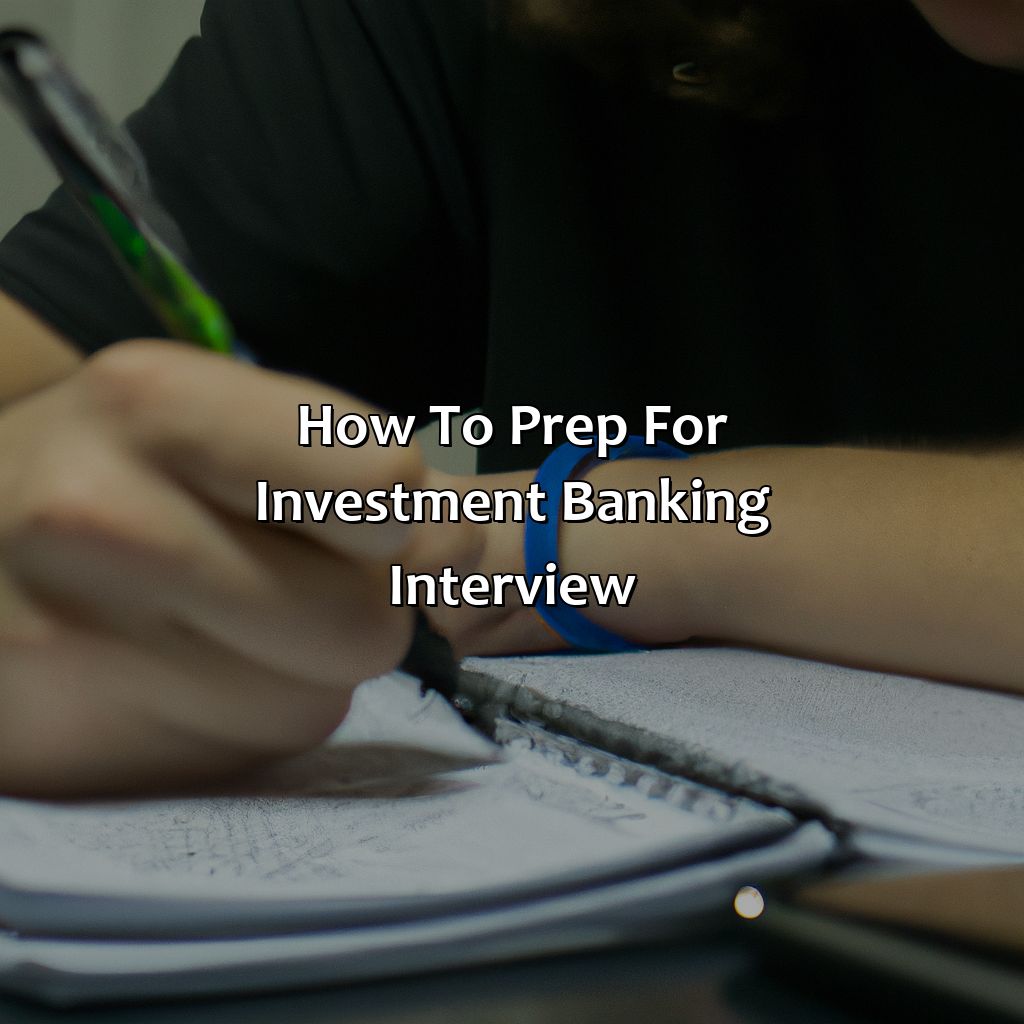How To Prep For Investment Banking Interview?
Key Takeaway:
- Research the Firm: A comprehensive understanding of the firm’s history, mission, culture, and current events is essential preparation for an investment banking interview.
- Ace the Technical Questions: Master financial statement analysis and valuation techniques to demonstrate technical competence.
- Effectively Present Yourself: Dress professionally, develop a confident communication style, and make a positive impression with your nonverbal language.
- Practice, Practice, Practice: Conduct mock interviews, rehearse responses to common interview questions, and refine your performance.
- Follow-up Strategies: Send thank-you notes, network with current employees, and manage post-interview expectations to maximize chances of success.
Do you feel overwhelmed by the prospect of an investment banking interview? This article will provide you with all the information and resources you need to confidently ace your upcoming interview. With the right guidance, you can be ready for anything!
Research the Firm
In-Depth Preparation for Investment Banking Interviews
To make a lasting impression in an investment banking interview, it’s important to go beyond just understanding the job requirements and qualifications. To stand out from the competition, a thorough understanding of the company’s mission, values, and culture is necessary. Knowing the specific industry and market trends also demonstrates dedication and initiative.
Additionally, researching the key players in the industry and identifying the company’s competitors can provide valuable insights on the firm’s position within the market, as well as the company’s goals and strategies. This knowledge can prove invaluable during the interview process where you’ll need to demonstrate your understanding of the company and articulate how you can create value within the organization.
In order to impress the interviewer and show your dedication to the industry, highlight your personal connections and interests that relate to the company’s mission and values. Showcasing your experiences and passion is key to setting yourself apart from other candidates.
Finally, practicing common interview questions with a focus on showcasing your unique skills and experiences can increase your chances of success. Be sure to highlight your achievements, personal strengths, and unique approach to problem-solving. By showing your extensive knowledge of the company, the industry, and your own strengths, you will make a lasting and positive impression during your investment banking interview.

Image credits: retiregenz.com by Joel Arnold
Understand the Role
The Importance of Understanding the Investment Banking Role
Investment banking is a dynamic field, and understanding the role is critical to success as an investment banker. Specifically, comprehending the scope and nature of the job, as well as the duties and responsibilities, is vital. As an aspiring investment banker, you need to recognize the role as being multifaceted, involving high-level activities, including financial modeling, pitching, analysis, and building relationships with clients.
It is crucial to grasp the essential characteristics of the role, including the importance of teamwork, communication skills, the ability to work under pressure, attention to detail, and creativity. Demonstrating these vital qualities and a clear understanding of the role during interviews will help you stand out from other candidates.
Unique Details To Know
One key aspect of the role is the requirement for technical proficiency, including mastery of accounting, finance, and valuation fundamentals. Demonstrating aptitude in quantitative reasoning, problem-solving, and analytical thinking is also essential. Be prepared to discuss your previous experiences, especially those related to financial models, and any impact those experiences may have had on your decision to pursue investment banking as a career.
Suggestion and How it Works
To prepare for an investment banking interview, practice is vital, and one can start by studying the company’s business model, researching industry trends, and developing an in-depth understanding of valuation techniques. Be ready to discuss your experience and provide examples of your teamwork, communication skills, and analytical reasoning.

Image credits: retiregenz.com by Adam Jones
How to Ace the Technical Questions
Want to ace investment banking interview technical questions? We’ve got the answers! Check out our sections on ‘How to Ace the Technical Questions’. Inside, you’ll find ‘Mastering Financial Statement Analysis’ and ‘Learning Valuation Techniques’. Crack the interview and kickstart a successful investment banking career with these key sub-sections.

Image credits: retiregenz.com by David Duncun
Mastering Financial Statement Analysis
Analyzing Financial Statements like a Pro
To master financial statement analysis, you need to understand the various financial statements and their interaction. Interpret cash flows, balance sheets, and income statements to evaluate a company’s performance, liquidity, solvency, and profitability. Ensure to analyze financial ratios, such as leverage ratios, liquidity ratios, and profitability ratios accurately.
In-depth Understanding of Ratio Analysis
Ratio analysis is crucial in understanding a company’s financial performance by identifying trends and changes in performance over time. It helps investment bankers use historical data to predict future performance. Learn how to analyze ratios like price-to-earnings ratio (P/E ratio), return on equity (ROE) ratio, debt-to-equity ratio (D/E ratio), among others.
Skills for Successful Financial Modeling
Your financial modeling skills will distinguish you from other candidates. Understand how to build a three-statement model integrating the income statement, balance sheet, and cash flow statement. Be prepared for brainteasers that test your financial modeling skills.
Ace Your Interview with Confidence
With comprehensive note-taking of all important details during your preparation period and extensive practice sessions with experienced individuals in the field you want to join as well as conducting mock interviews with acquaintances can significantly boost your confidence levels.
Mastering Financial Statement Analysis is critical for landing an Investment banking role because it demonstrates that you can handle complex real-world tasks effectively. Be ready to outshine your competition!
Valuing a company is like solving a puzzle, but instead of pieces, you’re putting together financial statements and Excel formulas.
Learning Valuation Techniques
Valuing assets and securities within the investment banking industry is vital. To perform such assessments, it is necessary to learn diverse valuation techniques. With an in-depth comprehension of widely used methods such as discounted cash flow (DCF), multiples analysis, and comparable company analysis (CCA), a successful investment banker must be a jack-of-all-trades.
When analyzing a company’s financial performance, DCF helps ascertain its intrinsic value by calculating future cash flows discounted to present values. CCA compares companies with similar attributes using trading or transactional metrics. On the other hand, multiples analysis estimates how much an investor should pay based on past or current earnings.
Understanding all these methodologies and when to apply them while maintaining accuracy requires extensive preparation before investment banking interviews. Practice by experimenting with various business cases and digging deep for niche knowledge, which can help candidates stand out.
Investment banking demands professionals familiar with computer programming languages like Python for coding financial models. Knowing relevant languages convey preparedness and intrigue interviewers as well.
According to Bloomberg Terminal data, JPMorgan generated the highest revenue across global investment banks in 2020; this is proof of their expertise in conducting analyses and valuations to achieve maximum profits for clients.
Remember, confidence is key when presenting yourself – but don’t overdo it, or you’ll come off like a used car salesman trying to sell an investment banking job to your interviewer.
How to Effectively Present Yourself
Cracking an investment banking interview? Get ready! Dress appropriately. Speak confidently. Use non-verbal language. Your first impression counts. Be assertive. Build a connection with the interviewer. Ace it!

Image credits: retiregenz.com by Harry Arnold
Dressing for the Interview
Giving Off the Right Impression During Professional Interactions
When it comes to impressing your potential employer during investment banking interviews, presentation is key. Dress in a manner that exudes professionalism and confidence.
Choose conservative colors like navy, black or gray for your suit and make sure they fit properly. One should also wear a dress shirt with a collared neckline, complemented with polished leather shoes with socks that compliment the suit. Women should opt for closed-toe shoes and avoid wearing revealing clothing no matter how tempting it is.
Accessorize yourself modestly with small earrings, conservative tie (for men) and minimal watch or bracelet (for women). Completing this attire with neat hair and limited cologne/perfume application is crucial.
Believe it or not, people notice your dress code before anything else when they meet you for the first time. Consider this as a little sneak-peek about who you are – ensuring employers will want to learn more about you!
Confidence is the key to successful communication, unless you’re trying to convince your cat to take a bath.
Developing a Confident Communication Style
Communication is vital when it comes to Investment banking interviews. Presenting oneself confidently is crucial to stand out from the rest. Effective Communication can be achieved by mastering non-verbal cues, using appropriate language, and active listening.
To develop a confident communication style, one must focus on body language, maintaining eye contact, and using an assertive voice. Language-wise, using industry-specific jargon and being mindful of mannerism can make an impression. Active listening and asking questions can show interest and understanding.
In addition to mastering these techniques, researching about the company and current events in the investment banking industry can help boost confidence in presenting oneself.
Pro Tip: Rehearse common interview questions with a mentor or friend to build comfort in communicating with potential employers.
Remember, your body language speaks louder than words, so if you want to impress in an investment banking interview, don’t forget to channel your inner power pose.
Making an Impression with Your Nonverbal Language
Nonverbal Communication: Mastering the Art of Body Language to Make a Lasting Impression
Your body language speaks louder than words in an investment banking interview. Impressions are formed within the first few seconds, so it’s essential to get your nonverbal communication right. Start by projecting confidence through your posture and firm handshake. Maintain eye contact throughout the interview to show attentiveness and interest. Use subtle gestures such as nodding to convey engagement and understanding.
To make a great impression, avoid fidgeting, hunching or crossing your arms during the interview. These postures indicate defensiveness or disinterest. Instead, aim for an open, relaxed body posture that exudes confidence and creates a welcoming environment.
It’s worth noting that cultural differences may impact nonverbal communication styles when interacting with people from different backgrounds, so be mindful of this during the interview.
Body language plays a crucial role in creating memorable moments that last long after the interview ends. By practicing good body language habits, you can leave an indelible mark on your interviewer’s mind.
True Story: A candidate who aced his technical skills test didn’t get hired because he wasn’t maintaining eye contact and kept folding his arms during the behavioral section of his investment banking interview. Small but significant changes in body language can have a massive impact on interview outcomes.
Practice makes perfect, unless you’re practicing your impression of a nervous wreck during an investment banking interview.
Practice, Practice, Practice
Craft your investment banking interview skills via practice! ‘Practice, Practice, Practice‘ should be your mantra. Mock interviews and rehearsing answers to typical questions are essential. These sub-sections will be the key to success.

Image credits: retiregenz.com by Yuval Woodhock
Conducting Mock Interviews
Mock Investment Banking Interviews to Prepare for the Real Deal
Conducting mock interviews is an essential step in preparing for investment banking interviews. Not only does it help simulate the real experience, but it also enables applicants to identify their shortcomings and work on them beforehand.
Here’s a comprehensive guide to help you conduct your mock interview successfully:
- Invite someone you can trust, preferably someone with prior experience in the investment banking industry.
- Set a meeting agenda that includes behavioral, technical, and market-related questions.
- Simulate the intensity of a real interview by dressing formally and eliminating all distractions.
- Record the interview to re-watch later and analyze areas that need improvement.
- Conduct multiple sessions of mock interviews to practice diversity in the questions’ context and increase your exposure to various scenarios.
- Solicit feedback from your interviewer and use it constructively to prepare yourself better for upcoming interviews.
It’s essential to keep in mind that planning effectively will help make conducting mock interviews more useful. Ensure thorough research on companies you’re interviewing with, enabling more specific role-play.
One-on-one encounters can be nerve-wracking experiences; however, treating mock interviews professionally helps reduce anxiety levels significantly.
A friend of mine once conducted ten mock interviews before his first-ever interviewing process. The repetitive practice enabled him to familiarize himself with common questions asked and provided him with opportunities to polish his responses accordingly. Though it may seem like overkill, this aided him significantly during his real job interview.
Just remember, in an investment banking interview, it’s not about being right, it’s about confidently pretending you’re right.
Rehearsing Your Responses to Common Interview Questions
Preparing Your Interview Responses
To succeed in an investment banking interview, practicing your responses to common questions is crucial. Here are four tips to prepare for common interview questions:
- Research the company and the position you are interviewing for
- Prepare and practice concise answers to common questions about skills, experience, strengths
- Be prepared to answer behavioral interview questions with specific examples from your work experience
- Practice talking about any gaps or weaknesses in your experience with confidence and positivity
It is essential to remember that each interviewer may have unique sets of questions. Therefore, it is also crucial to be flexible and adapt your answers according to each interviewer.
One critical element of successful preparation is finding a balance between being over-rehearsed, which can make responses sound stiff and unnatural, and not being prepared enough, which may lead to stammering or long pauses.
Many experts suggest role-playing potential interviews or participating in mock interviews with colleagues or friends as an excellent approach for sharpening presentation skills.
According to a study by the Career Service Center at Baylor University, job seekers who practiced their responses before an interview were more likely to be offered employment than those who did not.
Time to sharpen those stalking skills, because persistence pays off in both dating and follow-up strategies for investment banking interviews.
Follow-up Strategies
Ace your investment banking interview! Here are some tips:
- Have strong follow-up strategies.
- Stand out from other candidates.
- Send thank-you notes after the interview.
- Network with current employees.
- Get insights into the company’s culture and recruitment process.
- Manage post-interview expectations.
- Keep your focus on the next step of the interview process.

Image credits: retiregenz.com by Joel Arnold
Sending Thank-you Notes
Expressing Gratitude – Investment banking interview follow-up strategies involve sending professionally written thank-you notes to potential employers. This simple yet effective gesture not only shows appreciation for the interviewer’s time but also keeps the applicant in the employer’s mind. By acknowledging a pleasant conversation and highlighting relevant discussion points, this note leaves a lasting impression on recruiters.
There is no better way to show interest and professionalism than sending handwritten or personalized thank-you emails after an interview. Doing so will help candidates stand out among other applicants and leave a positive impression on hiring managers. Applicants can use this as an opportunity to express their excitement for the position, reiterate their qualifications, and include any additional information that may have been overlooked during the interview process.
Handwritten notes are usually preferred as they add a personal touch but it is acceptable to send professional emails as well. To avoid typos, proofread multiple times before sending and make sure that you’ve got all the proper details correctly such as names, dates, titles, etcetera included in your note before clicking submit.
A true story of someone who followed up marvelously after an investment-banking interview is just an email away from securing his dream job. After being interviewed by a leading investment bank company for an internship position, he sent out thank-you notes to every individual he had met with at the company within one hour of completing his interviews. In his emails, he personalized messages based on discussions and shared his passion for finance. Eventually, five out of six contacts responded positively and congratulated him on his efforts towards securing an internship by making use of follow-up strategies effectively!
You know it’s time to network with current employees when you’ve spent more time studying the company’s LinkedIn page than your own.
Networking with Current Employees
Investment banking interviews require effective networking with employees. Dig deep into the financial institution’s database to collect information about who works there. Engage these professionals as they provide insights and serve as connections to HR departments.
Networking is all about creating and nurturing relationships while adding value to those individuals’ lives as well. It enhances communication skills, business acumen, and most significantly, provides unfiltered feedback about the firm’s culture.
One best practice for effective networking is to leverage online platforms like LinkedIn and Glassdoor. Companies hold review sessions where current/employee alumni of the organization participate in interactive Q&A sessions.
Glassdoor is a great source where potential candidates can find interview questions asked by banks during their recruiting process. Using this resource enables preparation ahead of time by knowing what to expect in terms of bank-specific or generic investment banking questions.
According to a news report from Wallstreetmojo.com, “Networking helps job seekers access dark pools of unemployed talent inaccessible through official channels.” Thus, having reliable sources would allow any aspiring banker a significant advantage above his/her peers during an interview process.
Managing Post-Interview Expectations
After an investment banking interview, it is crucial to manage your expectations. It is best to remain professional as you wait for updates from the hiring team.
Ensure that you follow up within a week of the interview. Send a thank-you email and use this opportunity to express your excitement about the position. Avoid being overly pushy or desperate.
It’s important to remember that there may be multiple rounds of interviews and other factors at play when it comes to decision-making. Keep in mind that it may take some time before you receive a response.
According to Wall Street Oasis, investment banks operate on their own schedules, which can often extend much longer than other industries who typically follow more traditional hiring timelines.
Five Facts About How To Prep For Investment Banking Interview:
Research the company and the industry in-depth to gain a deeper understanding and be able to answer questions more effectively. (Source: Vault)
Practice common interview questions with a friend or mentor to ensure you are prepared and confident. (Source: TopResume)
Brush up on technical skills and financial knowledge to demonstrate your expertise and suitability for the role. (Source: Wall Street Oasis)
Dress professionally and arrive early to show your respect for the interviewer’s time and the company. (Source: The Balance Careers)
Show enthusiasm for the position, the company, and the industry to demonstrate your passion and commitment to the field. (Source: Investopedia)
FAQs about How To Prep For Investment Banking Interview?
What is the best way to prepare for an investment banking interview?
The best way to prepare for an investment banking interview is to research the firm and industry, practice common interview questions, and improve your technical skills.
What questions can I expect in an investment banking interview?
You can expect a mix of technical questions related to accounting, valuation, and financial modeling, as well as behavioral questions about your background and experience. Be prepared to discuss your career goals, strengths, and weaknesses.
How can I improve my technical skills for an investment banking interview?
You can improve your technical skills by practicing financial modeling, accounting, and valuation exercises. There are also many online resources and courses available to help you prepare.
What should I wear to an investment banking interview?
You should dress professionally in a suit and tie or dress suit for men, and a suit or professional dress for women. It’s better to be overdressed than underdressed.
How important is networking for landing an investment banking job?
Networking is very important in the investment banking industry. It’s important to build relationships with professionals in the industry, attend events and conferences, and make connections with alumni or other contacts who can refer you to job opportunities.
What is the best way to follow up after an investment banking interview?
The best way to follow up after an investment banking interview is to thank the interviewer for their time and express your continued interest in the position. It’s also a good idea to include any additional information or references that may help your candidacy.
 Checkout this IRS Loophole
Checkout this IRS Loophole 
